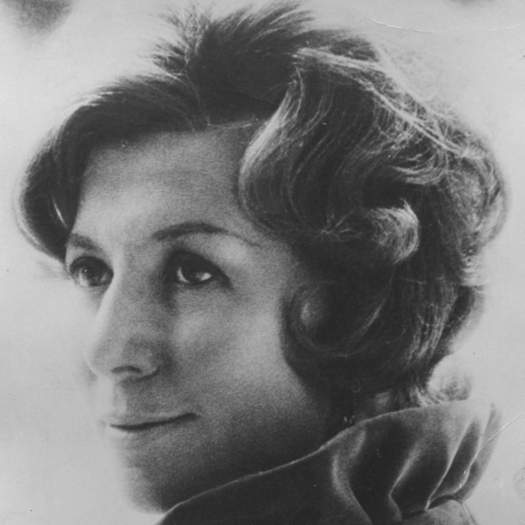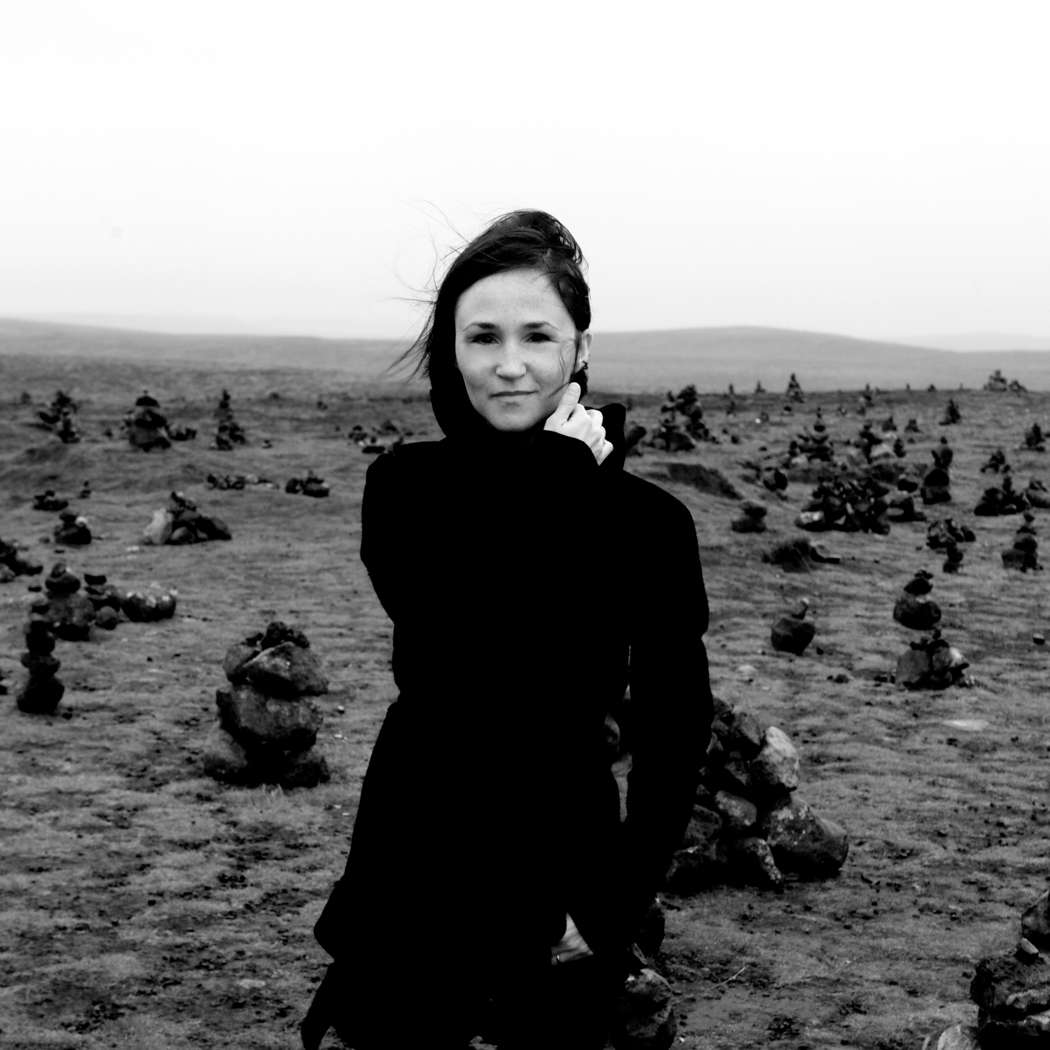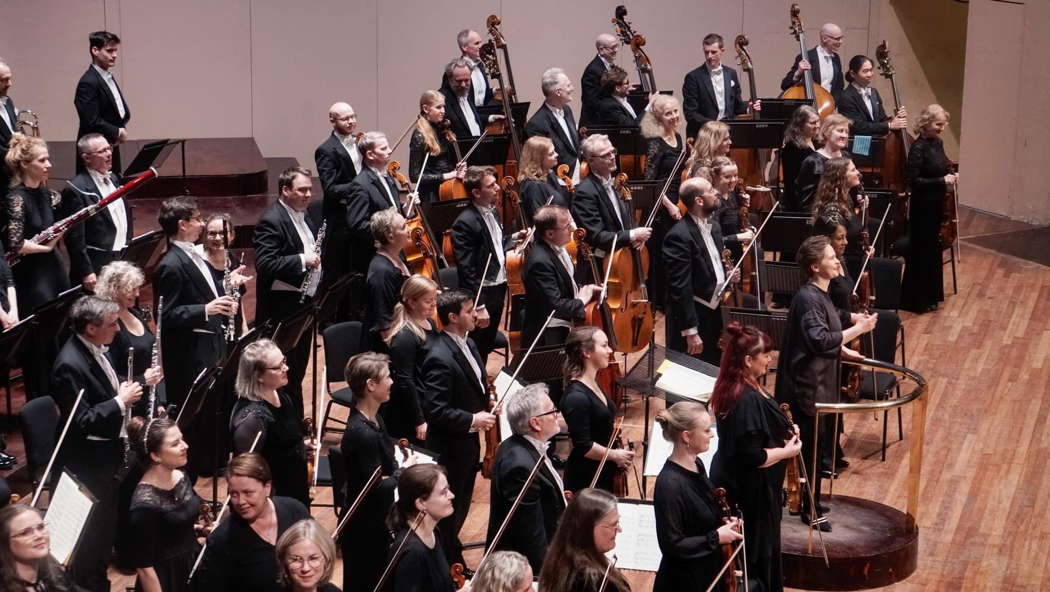 SPONSORED: Think of Something Beautiful - Malcolm Miller pays tribute to contralto Sybil Michelow (1925-2013).
SPONSORED: Think of Something Beautiful - Malcolm Miller pays tribute to contralto Sybil Michelow (1925-2013).
All sponsored features >>
A World-class Orchestra
MIKE WHEELER is impressed by the Iceland Symphony Orchestra and chief conductor Eva Ollikainen
The Iceland Symphony Orchestra's first visit to Nottingham, about six weeks before the first Covid lockdown in 2020, was a particularly memorable occasion. So there were high expectations for their return - with Chief Conductor Eva Ollikainen, this time - which were more than justified.
As before, they included a piece by their composer in residence, Anna Thorvaldsdóttir. In Metacosmos, her orchestral imagination is at full stretch, as she explores ideas of order and chaos. It opens with a sustained dark rumbling on low strings and percussion, before a sharp attack releases further strands on strings and woodwind, with the woodwind adding unpitched breathy sounds. In her pre-concert interview with broadcaster Katy Hamilton, Thorvaldsdóttir mentioned her work being built up in layers, and that was certainly clear in this performance, with tissues of criss-crossing lines against slowly revolving backdrops. Rhythmic percussion writing in the central passage menacingly suggested the composer's image of falling into a black hole. As it suddenly all started to clear, there was a moving sense of growing serenity, as the string lines rose ever higher, with leader Sigrún Eðvaldsdóttir's final note suspended over 'airy' sounds from the double basses. After the composer appeared on stage, and thanked the conductor and orchestra, the surge in the applause as she turned to the audience to take her bow was genuinely heartening.

Anna Thorvaldsdóttir. Photo © 2000 Saga Sigurdardottir
Stephen Hough joined the orchestra for Beethoven's Piano Concerto No 3. Following the crisply-played orchestral introduction, his first entry had a declamatory truculence, melting into the more lyrical passages, conveying a vivid sense of Beethoven's emotional complexity. With the cadenza came an irresistible image of pianist and composer jointly wrestling with the music's implications, suggesting a Beethoven frustrated by some intractable material. But then Hough turned the corner into the lyrical theme, affording a moment's relief, before the orchestra's re-entry for the tense coda.
The piano solo opening to the second movement was unusually sombre, but as Beethoven began spinning his elaborations, Hough made it easy to hear how some of the writing would have had its roots in the composer's celebrated improvisations. There were moments of utter serenity, from soloist and orchestra alike, notably when Hough provided a gentle rippling accompaniment to the bassoon and flute (Antonia Zimmermann and Thomas Hancox) dialogue later.
Beethoven and C minor have often been yoked together in stormy or tragic stereotypes, but there was no trace of either in the bounding performance of the finale, which followed without a break. I even heard suggestions of polka rhythms I'd not been aware of before. There was a genuine moment of suspense before the brief cadenza, but then the fast coda took over, and the energy became even more playful.
Hough's encore, Anton Rubinstein's Melody in F, is the kind of piece that would have been dismissed in the past as 'salon music'. It was played here without a trace of condescension.

Stephen Hough
It's easy to take Tchaikovsky's Fifth Symphony for granted, but Ollikainen and the orchestra did nothing of the kind. The motto theme at the start was properly sombre, and the quicker tempo stole in unassumingly. With big-hearted, gutsy playing, alongside some eloquent soft moments, orchestra and conductor revealed just how much anger there is in the piece. Tchaikovsky's draft programme may have talked about submitting to fate, but there was nothing submissive about this performance.
Stefán Jón Bernarðsson's horn solo in the second movement had an apt touch of melancholy, meeting a consoling response from principal oboe Julia Hantschel. The motto theme's eruptions later were properly volcanic, emerging seamlessly the first time, the second time snapping balefully into place.
The third movement, one of Tchaikovsky's most gracious waltzes, provided a much-needed emotional breather, with buzzing muted horns and skittering string figures among the telling details, but with the motto theme casting a chill over the final bars.

The Iceland Symphony Orchestra with Eva Ollikainen
The major-key version of the theme at the start of the finale felt like a turning-point, but there were still tensions in the air as the quick music took off. Resolution was in sight, but we were not there yet - this was a masterclass in going flat-out while still keeping plenty in reserve. As throughout, balance ensured that busy inner parts came through clearly. The triumphant conclusion was bouyant and euphoric, but at the same time you could hear why Tchaikovsky at one point thought he had overdone it.
This is a world-class orchestra, no question.
Copyright © 2 May 2023
Mike Wheeler,
Derby UK




